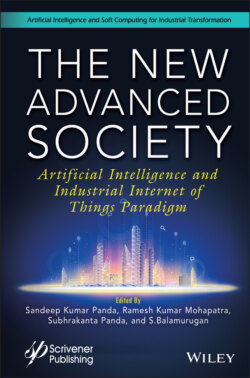Читать книгу The New Advanced Society - Группа авторов - Страница 31
2.3 Key Points of Corda
ОглавлениеR3 Corda is a collective endeavor that began in September 2015 between R3 and numerous banks and financial groups for creating a framework which is more than a conventional blockchain [39]. Corda is specially designed to deliver qualities such as quickness, privacy, scalability, and security. In terms of architecture, Corda is a DLT and not a Blockchain. Nevertheless, Corda has all the features like distribution, decentralization, fraud-proof, append-only, immutability, etc. that are offered by a blockchain [40]. Before proceeding any further, there are certain key points about Corda that one should know to have a better understanding of the solution:
Corda is a private and permissioned blockchain where the entry of nodes into the network is done over a network map service called the “doorman”. Here, every node is a verified IP address that undergoes a rigorous KYC process before being accepted into the network. Wherefore, nodes have their legal name, IP address, and X.509 certificate that is signed by the doorman [41].
The communication between the nodes is point-to-point with Transport Layer Security encrypted messages over AMQP. Therefore, only nodes with a genuine need-to-know requirement can see the data within an arrangement [42].
Transactions are considered as a proposal to update the ledger provided there is no double spend [43].
The UTXO (unspent transaction output) model wherein a transaction can have inputs and outputs ranging from zero to any number is used in Corda [44].
The transactions in Corda are validated by notaries as well as parties related to the transaction instead of a broader pool of unrelated validators.
The consensus in Corda has two aspects, namely: transaction validity, where the contract code that executes the transaction is checked and it is made sure that all the required signatures along with any referenced transactions are valid. The second aspect is transaction uniqueness where it is made sure that the respective transaction doesn’t lead to a double-spend by making sure that there no similar transaction exists [45].
There are certain special nodes in Corda, termed as notaries that can get involved in the transactions for validating them and terminating double-spending.
Multiple notaries are present in a Corda network, preventing a single point of failure.
The ledger is subjective from each peer’s perspective as no transaction is broadcasted to the entire network unless required. Each transaction is visible only in the ledgers of the peers that were involved in the transaction and no one else [46].
A minimum of two peers is always assured to see the same version of any on-ledger facts that they share.
